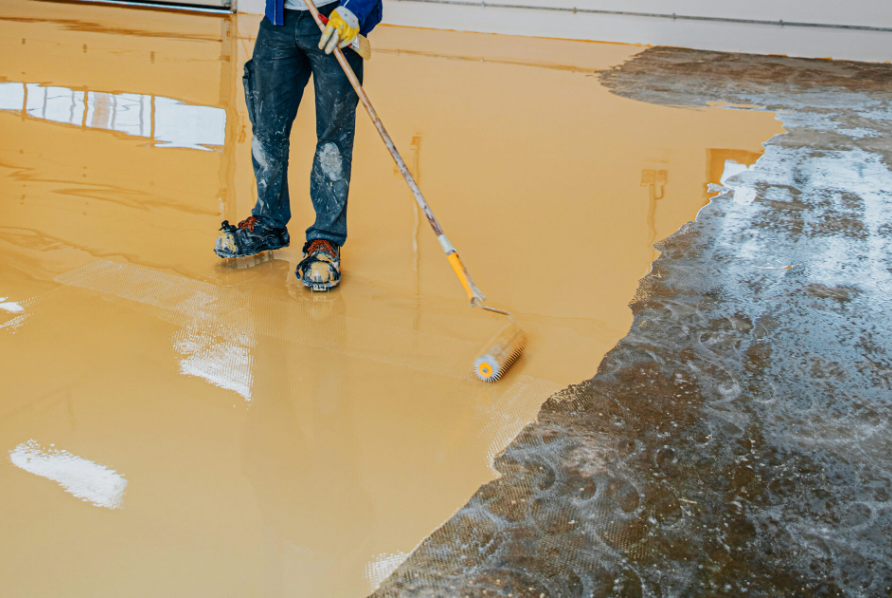Is floor paint a good idea?
Using floor paint can be a great idea in many situations, but it's important to carefully consider your specific needs, the type of floor you have, and the intended use of the space. Here are some advantages and considerations to help you determine if floor paint is a good idea for your situation:
Advantages of Using Floor Paint:
Improved Aesthetics: Floor paint can give your floors a fresh, new look, covering up imperfections and outdated designs.
Protection: Many floor paints are designed to provide a protective layer that can guard against stains, scratches, and other forms of wear and tear.
Durability: High-quality floor paints, such as epoxy paints, can offer exceptional durability and resistance to heavy foot traffic, chemicals, and abrasion.
Easy Maintenance: Painted floors are often easier to clean and maintain compared to untreated surfaces, as spills can be wiped up more easily.
Customization: Floor paint comes in a variety of colors and finishes, allowing you to personalize the appearance of your floors to match your design preferences.
Budget-Friendly: Painting floors can be a more cost-effective way to improve the look of your space compared to more expensive flooring options.
Considerations When Using Floor Paint:
Surface Preparation: Properly preparing the floor surface is crucial for the paint to adhere well and provide lasting results. This might involve cleaning, sanding, and applying a suitable primer.
Type of Floor: Different types of floors require different types of paint. Make sure to choose a paint that is compatible with the material of your floor.
Traffic and Use: Consider the level of foot traffic and the type of activities that will take place on the painted floor. For high-traffic areas, you'll need a more durable paint.
Application Complexity: Some types of floor paint, like epoxy, may require specialized application techniques that might be best left to professionals.
Odor and Ventilation: Some floor paints can emit strong fumes during application and curing. Adequate ventilation is important for your health and comfort.
Longevity: While many floor paints are durable, they might not last as long as certain flooring materials like hardwood or tiles.
Resale Value: If you're concerned about the resale value of your property, consider whether painted floors align with the overall aesthetics and preferences of potential buyers.
In summary, floor paint can be a practical and visually appealing solution for many spaces, especially if you choose the right type of paint for your needs and follow proper application procedures. However, it's important to assess your specific situation, take into account the factors mentioned above, and decide if floor paint aligns with your goals for aesthetics, functionality, and longevity.
Which type of paint is best for floors?
When choosing paint for floors, it's important to consider the specific requirements of the space and the type of traffic the floor will experience. Here are some commonly used types of paint for different types of floors:
Epoxy Paint: Epoxy paint is known for its durability and resistance to heavy foot traffic and chemicals. It's often used in industrial settings, garages, and basements. Epoxy paints create a hard, glossy surface that's easy to clean and maintain.
Concrete Floor Paint: This type of paint is formulated to adhere well to concrete surfaces and is designed to withstand foot traffic. Concrete floor paints are available in various finishes, including matte and glossy. They are commonly used in basements, workshops, and some outdoor areas.
Porcelain or Ceramic Tile Paint: If you have ceramic or porcelain tiles that you want to update, there are special paints designed for these surfaces. These paints create a protective layer over the tiles and are often used in bathrooms or kitchens.
Deck and Patio Paint: For outdoor floors, especially those made of wood or concrete, deck and patio paints are suitable. They are designed to withstand weather conditions and exposure to the elements.
Garage Floor Paint: Similar to epoxy paint, garage floor paint is formulated to withstand heavy traffic and resist chemicals, oils, and other substances commonly found in garages.
Laminate Floor Paint: There are paints specifically designed for laminate floors, which can help refresh the look of worn-out laminate surfaces.
When selecting paint for floors, consider the following factors:
Durability: Choose a paint that can handle the level of foot traffic and wear and tear the floor will experience.
Surface Preparation: Properly preparing the floor surface before painting is crucial for good adhesion. This might involve cleaning, sanding, and priming.
Type of Floor: Different types of floors require different types of paint. Make sure to select a paint that is suitable for the material of your floor.
Indoor vs. Outdoor: If the floor is outdoors, it needs to be able to withstand weather conditions, UV exposure, and temperature changes.
Finish: Decide whether you want a matte, semi-gloss, or glossy finish. This can affect both the appearance and the ease of cleaning.
Application Method: Some paints are meant to be rolled on, while others might require spraying. Make sure the chosen paint is compatible with the application method you plan to use.
Health and Safety: Consider any potential fumes or odors from the paint, especially if you're painting an indoor area.
Before purchasing any paint, it's a good idea to read product labels, reviews, and recommendations from the manufacturer to ensure you're selecting the best type of paint for your specific floor and needs.

